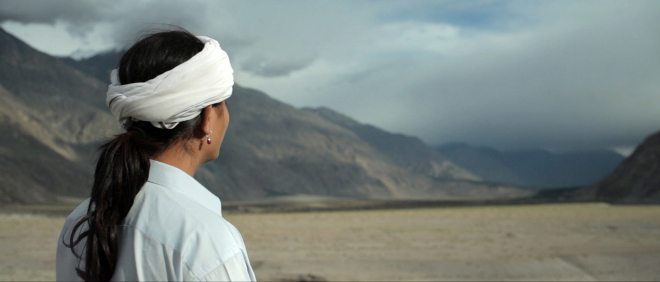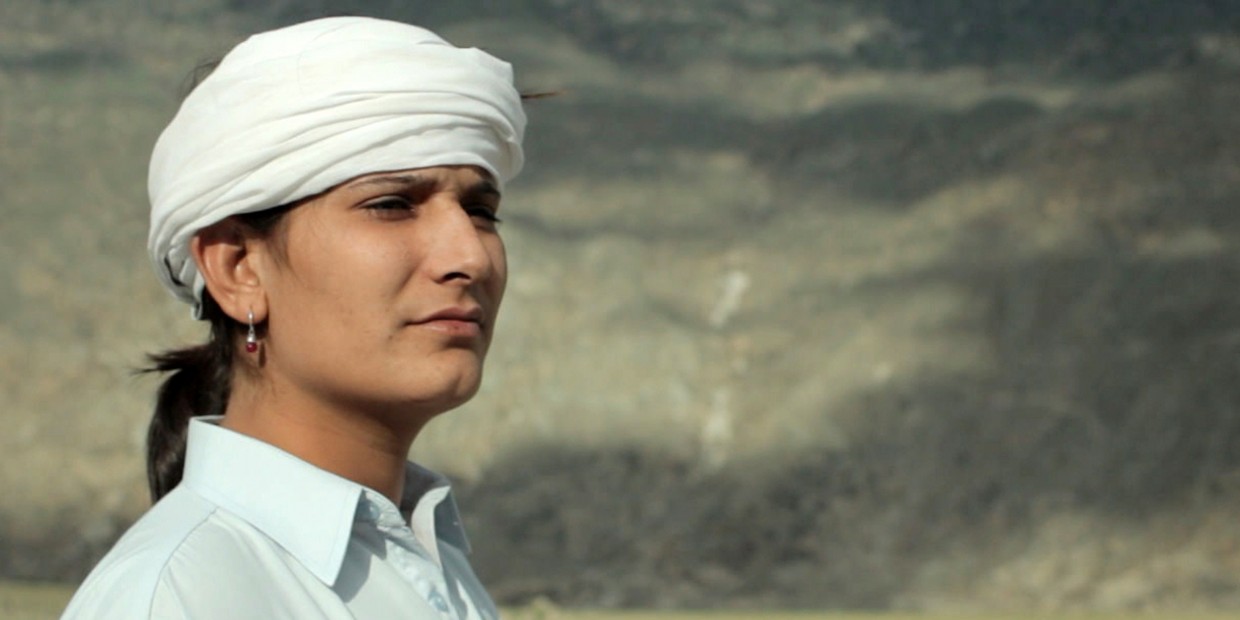By Alice Pickard
Directed by í‡aÄŸla Zencirci and Guillaume Giovanetti
í‡aÄŸla Zencirci and Guillaume Giovanetti keep true to their unique docufiction style in their first feature-length film, Noor. We travel through Pakistan following the eponymous protagonist, who is in a limbo, having recently left the Khusra community, a recognised third gender in Pakistan. The Khusras play an important part in community life, performing dances at social events, since Pakistani women are forbidden to do so.
“You’re a Khursa, don’t ever forget it. Dress like a woman.”
“But I dress like a man. Man’s life is what I prefer.”
Once a Khusra, always a Khusra. Does this have to be the case?
All Noor wants is to be in love and to have this love reciprocated, but not by just anyone, by a woman. Yet his lack of facial hair –a vital sign of masculinity in Pakistan– together with other complications from his unconventional past, make this task, already difficult for many men, complete with beard and moustache, harder for Noor. A poignant moment in the film is when Noor positions his face in the marked mirror to look as if he’s got a beard. Feeling cursed by his feminine beauty –his face is truly captivating to look at, his desperation to be a man is plain to see.
His only hope is to set out on a fairy-tale-like journey to a mythical lake in the northern mountainous region of the country, hoping to have his dream granted. His garishly decorated lorry –an unusual sign of masculinity in Pakistan, stubbornly plods on through the breath-taking landscape, as inconspicuous as Noor in the lorry depot where he works serving tea, answering to the name of “Sweetie”. Was life not better when he was dancing to earn a living with the Khusras?
Noor is completely resolved that being with the Khusras is not what he wants, but on his journey to discover himself, he seems to realise that dancing is part of his identity, and that this can be separated from the community that emasculated him. Perhaps this is why he never cuts his hair. For him, far from being a sign of femininity, his long hair is part of who he is, necessary for his passion for dance, as is demonstrated by his almost violent masculine head-shaking as well as the more gentle feminine head-swaying dance routines. Noor is who he is and should not be categorised.
This ingenious directing duo, who have worked together on eight films in total, let the non-professional actors shape the plot, and the realism this achieves is undeniable. Noor’s life isn’t fiction and we can feel that. We are invited into a world that will be foreign for so many of us, but this doesn’t hinder our reception. We are welcomed with open arms and guided on our journey –a physical and emotional one, as we explore Pakistan and at the same time learn about its people. The theme of transgender in this sensitive film offers us a fresh take on what it means to be a man or a woman, since in the West we are still struggling with concepts of gender and sexuality.
The film’s reception has been highly positive, and deservedly so. It was selected by the ACID at Cannes in 2012 and has since been showered with awards from a variety of festivals, such as Best Feature film prize, Best Director and Contemporary Creation Prize at Silk Road Film Festival (Ireland, 2014) and the Grand Prize at Dieppe International Film Festival (France, 2012).
Check out our interview with directors í‡aÄŸla Zencirci and Guillaume Giovanetti here.
Watch Noor now at FilmDoo.com. (UK & Ireland only)





